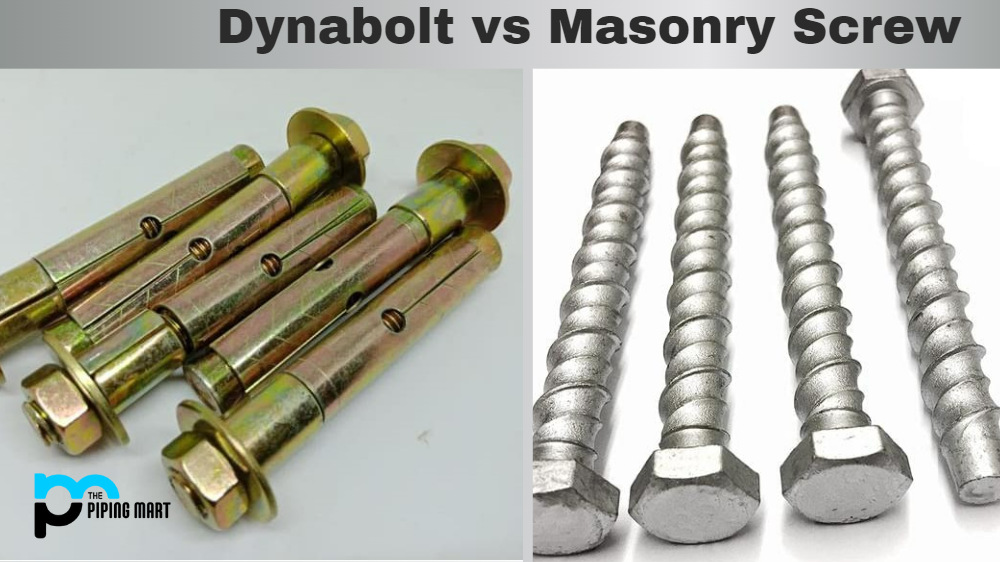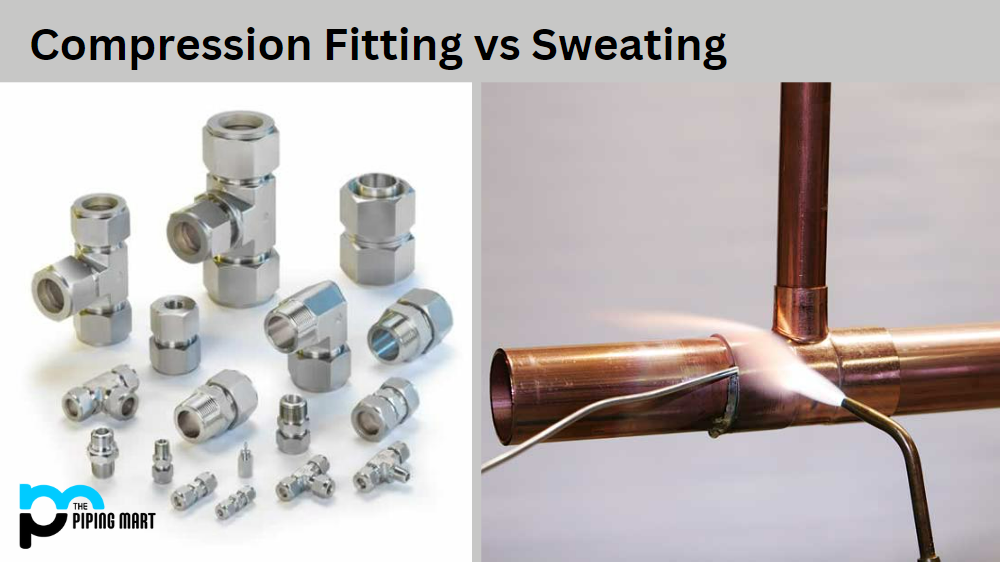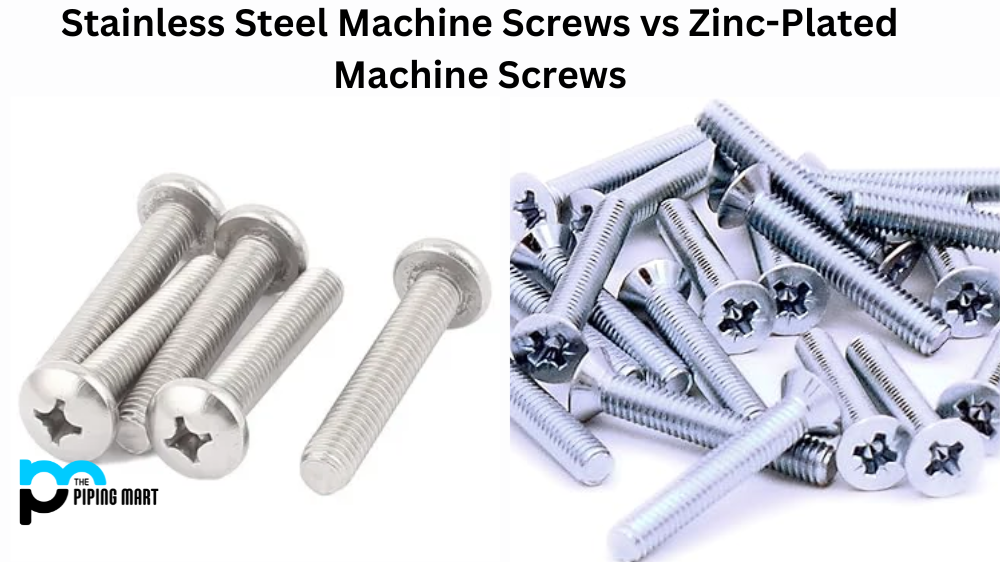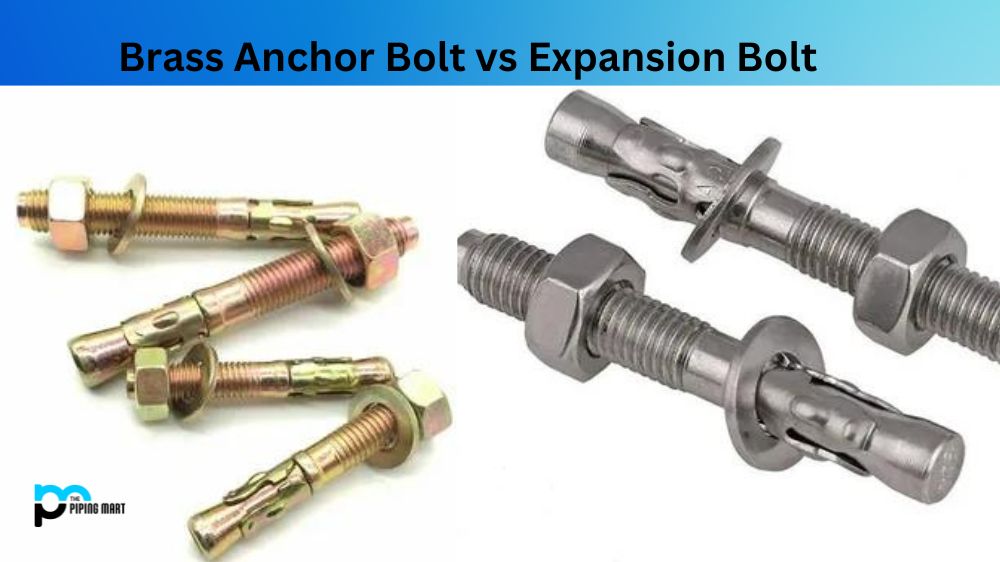Choosing the suitable fastener for a project, whether for construction or DIY, can be daunting. Today, we’ll discuss two popular fasteners – Dyna bolts and masonry screws. Both pins have different specifications and abilities, and choosing the wrong one can lead to disastrous results. So, let’s dive in and compare Dyna bolts and masonry screws and determine which is best for your project.
Dyna Bolts
Dynabolts are ideal for heavy loads and high-stress situations. They commonly anchor beams, columns, wall frames, and other heavy-duty applications into concrete, brick, and stone. Dynabolts are machine threaded and require drilling holes before installation. They also have a unique design that allows the bolt to expand and grip the substrate as the nut tightens, creating a solid and durable hold. Dynabolts are high-grade steel which can withstand high-pressure loads and vibrations.
Masonry Screws
Masonry screws are another popular option in the construction industry. They are much easier to install than Dyna bolts, especially for DIY enthusiasts. They require a specialized masonry drill bit, and once the hole is drilled, the screw can be installed directly into the hole. Masonry screws are ideal for non-heavy-duty applications such as anchoring a bracket, handrail, or railing into concrete or brick. They also come in different sizes, lengths, and materials, such as stainless steel or nylon.
Differences Between Dyna Bolts and Masonry Screws
The main difference between dynabolts and masonry screws lies in their applications. Dynabolts are ideal for high-pressure loads, heavy items, and construction projects, while masonry screws are best used for low-stress and medium-duty applications. Dynabolts require a pre-drilled hole, a nut, and a washer for installation, while masonry screws only need a drill and a driver. Masonry screws are budget-friendly and ideal for small DIY projects, while Dyna bolts are more expensive but provide excellent durability and strength.
How to Choose the Right Fastener for Your Project
Before selecting a fastener for your project, consider the following factors:
- Load capacity requirements (heavy or light application)
- Substrate type (concrete, brick, or stone)
- The durability and strength required
- The budget and ease of installation
If you’re working on a heavy-duty construction project or need to anchor heavy items, Dyna bolts are the best choice. Alternatively, if you’re working on a small DIY project or need to install non-heavy items, masonry screws are the perfect choice. Proper fastener selection is essential to ensure the project’s success and safety.
How does Dynabolts Compare to Masonry Screws?
Dynabolts are stronger than masonry screws and can be used in applications requiring more strength, such as attaching metal to concrete. Masonry screws are less likely to strip out when installed, making them ideal for use in applications where precision is essential, such as attaching wood to masonry.
Benefits of using Dynabolts
Some benefits of using Dynabolts include their high strength, corrosion resistance, and ease of installation.
Benefits of using Masonry Screws
Some benefits of using masonry screws include their precision installation, wide range of sizes and lengths, and ease of removal.
Conclusion
Selecting the suitable fastener for your project can be challenging, but with the above comparison and information, you should understand dynabolts and masonry screws well. Dynabolts and masonry screws differ in their applications, durability, strength, and ease of installation, and selecting the right option depends on the project’s requirements. Considering the load capacity, substrate type, durability, budget, and structure is essential while choosing between dynabolts and masonry screws for your project. Always prioritize safety and quality while choosing the correct fasteners for your project.
Rachana is a dedicated and ambitious young woman who has made a name for herself in the metal industry. From her earliest days in the industry, Rachana showed a natural talent for problem-solving and a keen eye for detail. In her free time, She enjoys reading up on the latest advancements in the industry, as well as exploring new ways to innovate and improve upon existing processes.




